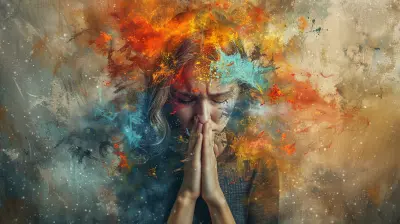Freud vs. Jung: Diverging Paths in the Exploration of the Psyche
5 June 2025
When we dive into the fascinating world of psychology, two heavyweight names consistently float to the surface: Sigmund Freud and Carl Jung. These two pioneers revolutionized how we understand the human mind. But here’s the catch—they didn’t always see eye to eye. In fact, their theoretical break-up is one of the most talked-about schisms in the history of psychology.
So, what happened? How did these once-close allies end up parting ways? And more importantly, why does it still matter today? Buckle up, because we’re about to take a deep dive into the minds of Freud and Jung—two legends with very different takes on what makes us tick.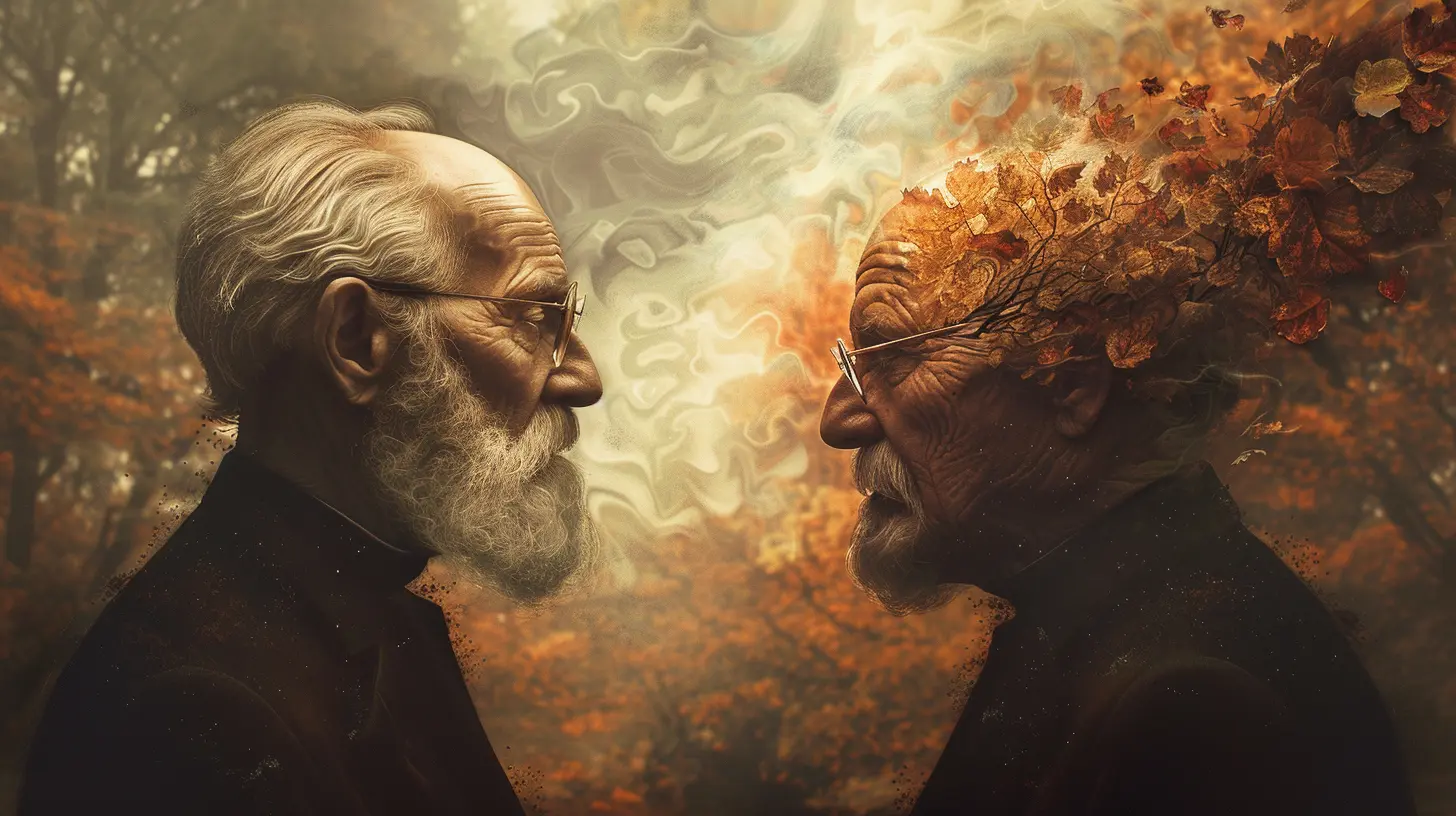
Table of Contents
1. The Beginnings: Freud and Jung’s Early Friendship2. Freud’s Approach to the Psyche
3. Jung’s Vision of the Mind
4. Key Differences Between Freud and Jung
5. The Breakup: When Paths Split
6. Legacy and Modern Impact
7. So, Who Got It Right?
8. Final Thoughts
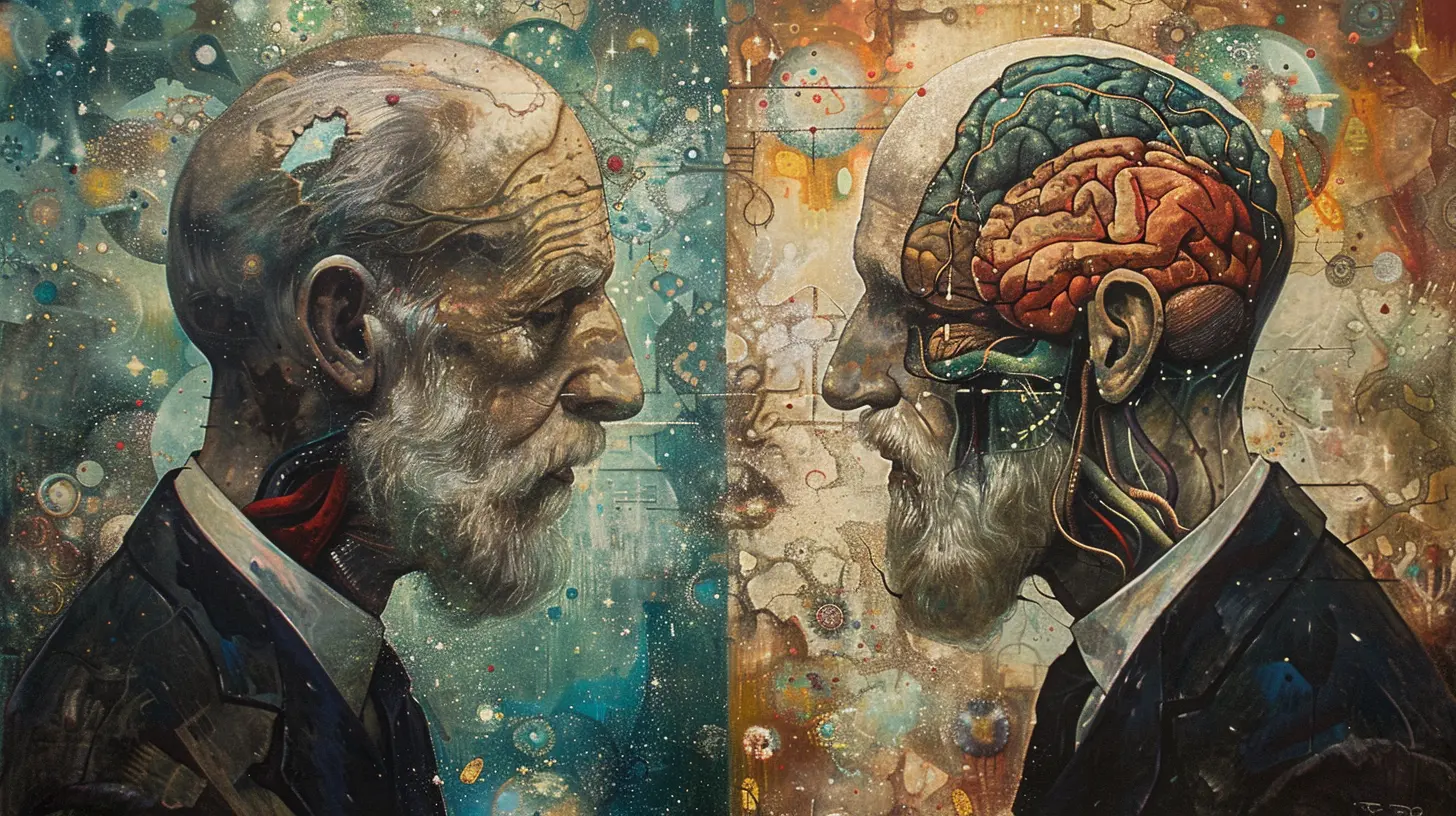
The Beginnings: Freud and Jung’s Early Friendship
Imagine a mentor-mentee relationship that starts with wild enthusiasm and shared dreams of unearthing the deepest secrets of the human mind. That's exactly how it went down with Freud and Jung. When they met in 1907, the connection was instant. Freud saw Jung as his natural heir in the burgeoning field of psychoanalysis. Jung admired Freud’s bold ideas and his intellectual courage.They even reportedly had a 13-hour conversation when they first met. Who does that unless you’re absolutely vibing? But, like many intense relationships, especially ones involving giant egos and groundbreaking theories, things got messy.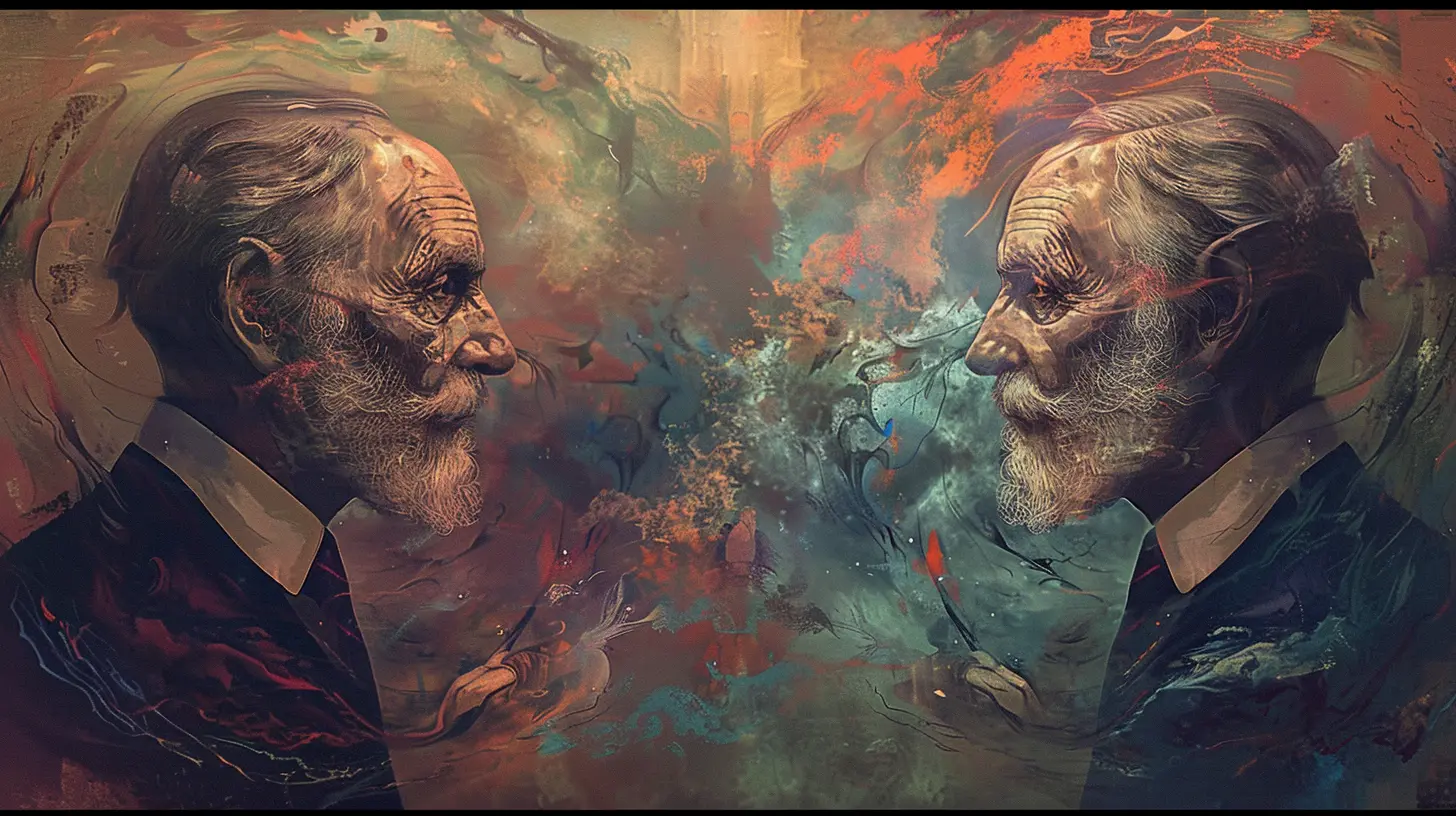
Freud’s Approach to the Psyche
Let’s start with Sigmund Freud, the father of psychoanalysis. If Freud had a playbook, the title would be something like, “Everything Comes Down to Sex and the Unconscious.” Bold? Yes. Accurate? In many cases, surprisingly.The Core of Freud’s Theory
Freud broke down the mind into three parts:- Id – That wild, primal voice in your head that wants what it wants, now.
- Ego – The rational, realistic mediator between desire and reality.
- Superego – The moral compass, shaped by society and what we’ve been taught is “right.”
He believed that our behavior is driven by unconscious motives, especially those tied to repressed desires—often of a sexual nature.
Dreams and Repression
Freud also thought dreams were the royal road to the unconscious. He emphasized the importance of repressed memories and unresolved childhood conflicts. His theory of psychosexual development? Controversial, no doubt, but it laid the foundation for modern talk therapy.Psychoanalysis in Practice
In therapy, Freud aimed to bring unconscious material to light through techniques like free association and dream analysis. His goal? Help patients uncover and confront what they’ve buried.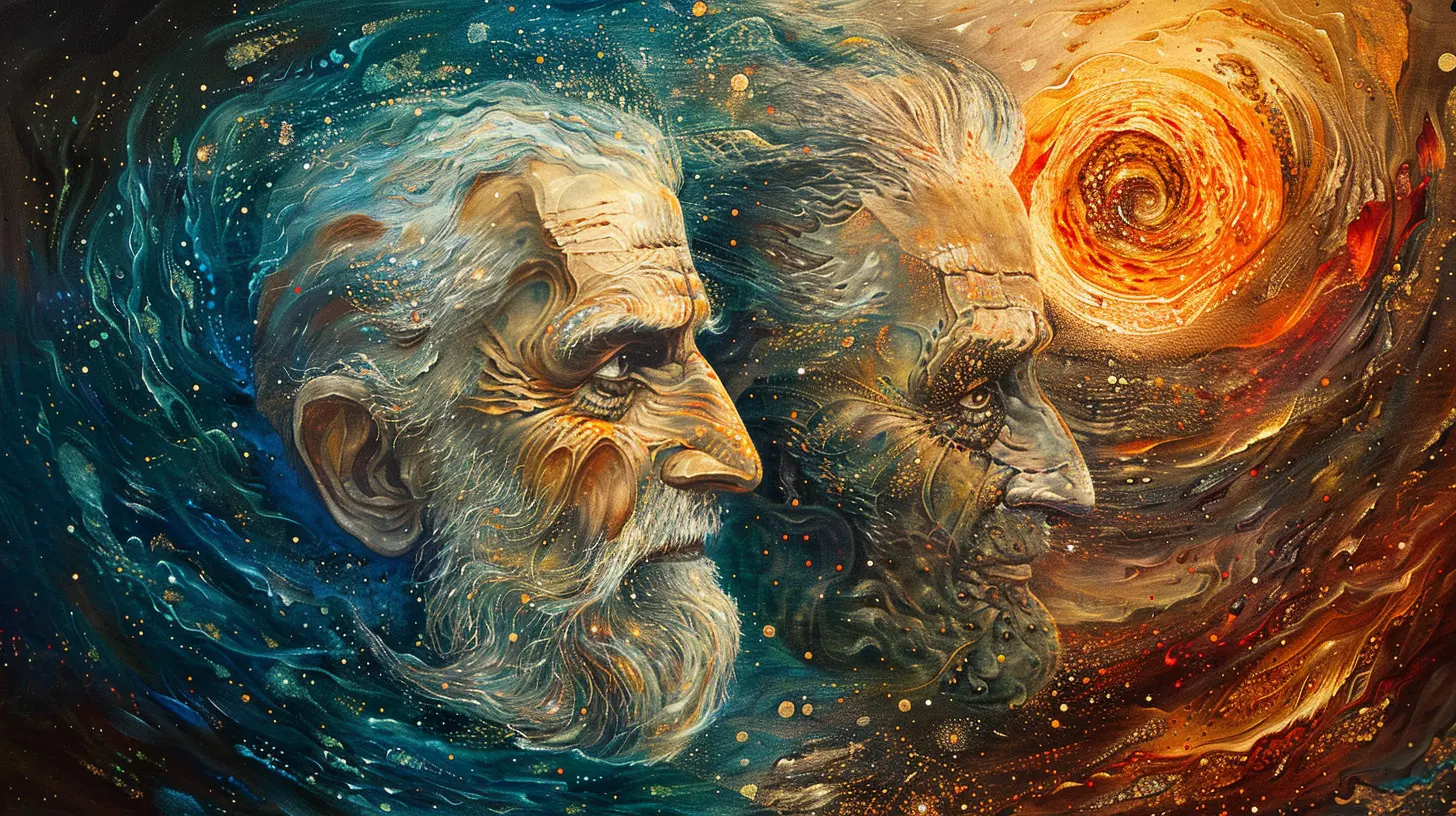
Jung’s Vision of the Mind
Now let's turn to Carl Jung. This guy was into archetypes, myths, spirituality, and something he called the “collective unconscious.” If Freud was digging deep into sex and repressed memories, Jung was gazing into the soul of humanity itself.The Collective Unconscious
This was one of Jung’s cosmic ideas. Unlike Freud’s personal unconscious, Jung suggested that we all share a deep psychic inheritance—a pool of memories and ideas common to all humans. Think of it as the human version of a shared hard drive, loaded with universal symbols called archetypes.Archetypes You Already Know
Even if you’ve never opened a psychology book, you know these archetypes:- The Hero
- The Shadow
- The Wise Old Man
- The Mother
- The Trickster
These show up in myths, movies, religions—you name it. Think about Frodo (the Hero), Darth Vader (the Shadow), or Yoda (the Wise Old Man). Classic Jung.
Individuation
Jung didn’t just want to fix your issues. He wanted you to become your true self—a process he called individuation. This meant integrating all aspects of your personality, even the uncomfortable or shadowy parts, to become whole.Key Differences Between Freud and Jung
Now that you’ve got the basics, let’s break down their core disagreements. Here’s a side-by-side comparison to make things crystal clear.| Area | Freud | Jung |
|------|-------|------|
| View of the Unconscious | Repressed sexual and aggressive urges | A collective, spiritual reservoir of human knowledge |
| Nature of Dreams | Wish-fulfillment rooted in repressed desires | Messages from the unconscious meant for personal growth |
| Key Motivator of Behavior | Sexual drives (libido) | General energy called "psychic energy" and search for meaning |
| Structure of the Psyche | Id, Ego, Superego | Ego, Personal Unconscious, Collective Unconscious |
| Religion & Spirituality | Skeptical, saw religion as illusion | Embraced spiritual exploration as essential to growth |
| Goal of Therapy | Make the unconscious conscious to resolve conflicts | Achieve individuation and psychic wholeness |
So yeah, not exactly aligned.
The Breakup: When Paths Split
At first, Freud thought Jung would carry the psychoanalytic torch into the future. But as Jung started to bring in ideas about spirituality, mythology, and the collective unconscious, Freud was not having it. Their letters turned from warm to... well, chilly.By 1913, the split was official.
Freud accused Jung of abandoning science. Jung, in turn, said Freud was too narrow-minded and obsessed with sex. And just like that, their bromance was over.
But instead of fading into obscurity, Jung doubled down. He created Analytical Psychology, which became a totally separate school of thought from Freud’s Psychoanalysis.
Legacy and Modern Impact
Today, both Freud and Jung continue to influence the world of mental health, even though their theories have been revised, critiqued, and sometimes outright dismissed.Where Do We See Freud?
Freud’s shadow looms large in talk therapy, especially in how therapists interpret defense mechanisms, childhood traumas, and dream symbolism.Terms like “Freudian slip,” “repression,” and “Oedipus complex” are still widely recognized—even if not always scientifically accepted.
What About Jung?
Jung’s ideas are thriving in areas like art therapy, dream work, and even leadership coaching. Think Myers-Briggs? Yep, based on Jung’s personality types.Plus, Jung's focus on spirituality and personal growth is a big hit in holistic and transpersonal psychology circles.
So, Who Got It Right?
That’s the million-dollar question, isn’t it?Freud’s work laid the groundwork for modern psychotherapy, no question. He forced the world to consider that we’re not fully in control of our actions.
But Jung brought something more human, more soulful. He encouraged people to look beyond pathology, to find meaning in life’s struggles.
In truth, both were visionaries. Freud gave us the tools; Jung gave us the map for the lifelong journey inward.
Final Thoughts
Freud and Jung may have taken diverging paths, but together they opened up avenues of self-discovery that we’re still walking down today. Whether you're analyzing your dreams or reflecting on your personal growth, you’re dipping into waters they helped chart.So next time you catch yourself wondering why you reacted a certain way—or having a bizarre dream about your high school math teacher—give a little nod to Freud and Jung. They’re probably still arguing about it somewhere in the collective unconscious.
all images in this post were generated using AI tools
Category:
PsychoanalysisAuthor:

Nina Reilly
Discussion
rate this article
2 comments
Lauren Riggs
This article succinctly highlights the fundamental differences between Freud and Jung, offering valuable insights into their unique approaches to understanding the psyche.
June 14, 2025 at 3:17 PM

Nina Reilly
Thank you! I'm glad you found the article insightful in highlighting the distinctions between Freud and Jung.
Lumen Cain
What a fascinating exploration of Freud and Jung's contrasting theories! Your insights beautifully highlight how their differing perspectives enrich our understanding of the human psyche. It's always intriguing to see how these foundational ideas continue to influence contemporary psychology. Thank you for sharing this engaging article!
June 7, 2025 at 3:10 AM

Nina Reilly
Thank you for your thoughtful comment! I'm glad you enjoyed the exploration of Freud and Jung's theories and their ongoing impact on psychology.
